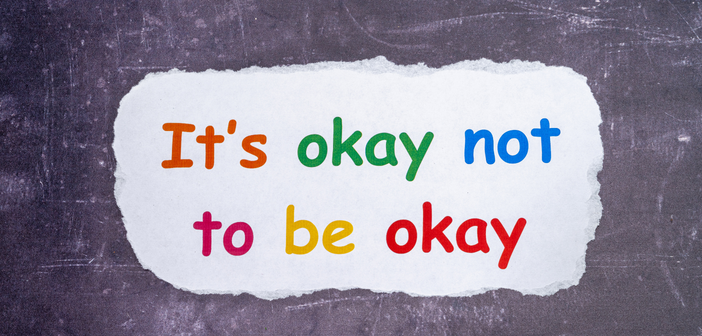No doubt the past week has changed so much so quickly. COVID-19 left many churches confused and conflicted about what the best next steps are as restrictions continued to be shared by our leaders to help contain the spread of the virus.
And church leaders were all over the spectrum with their responses. Some continued to meet. Some canceled right away. Some shared a video message. Some did a mixture.
But as we approach this week, I just want to share an honest thought: If you are still planning to meet in-person, you really shouldn’t be.
President Trump just recently shared that public groups should be no larger than 10 people. And just to be blunt, if we choose to fight that or ignore it, there’s one statement that is made to our community: “We don’t care about you.” This is a time for caution and careful, but strong, leadership.
This is not a time to hold on to tradition or routine for the sake of tradition or routine. The restrictions are increasing and there’s no sign that they’ll slow down soon. Rather than fighting, fearing, or ignoring these changes, let’s be strategic about how we can leverage them.
Here’s one positive outcome for ministries that I’m seeing: This crisis has caused a lot of our churches to come face-to-face with the benefit of the digital age we live in for the first time. Tools that were fought or ignored for quite some time are now being considered as viable options for ministry. And if we take this time to figure out how to leverage those tools, we can carry those strategies with us through the years ahead to remain intentional about our influence in our community.
So here are 30 ideas for you to consider to accomplish your mission without relying on an in-person Sunday service:
1) Shift your perspective about the digital age we live in.
A friend in ministry once told me, “Culture is like gravity. You can spend your whole life fighting against it, you can ignore its implications, or you can learn how to leverage it.” Many of us in ministry have fought or ignored these changes in our culture because they “take away from authentic connection” or “we don’t have the time.” As we approach the changes from COVID-19, it’s time to be intentional about learning to leverage this digital age to be a beacon of hope and peace to our entire community.
Utilizing online tools isn’t fake ministry. It’s real ministry to real people.
2) Remember that your mission is way bigger than your Sunday service.
I am very encouraged by how many churches decided to either stream their services online this past week or shared a pre-recorded video of their message. It’s a great way to maintain community and it’s so much more accessible to people who are not part of our church. But again, in the spirit of honesty, our efforts really can’t stop there. If our focus is too much on how we we can continue to meet (insider-focus), we miss out on how they can be reached (external focus).
So let’s expand our efforts (especially digitally) to go beyond our Sunday service and build trust with our community during this crisis.
3) Share your sermon online.
This can be Step 1. If you haven’t already made this shift, definitely start to share your sermon online. Whether you live stream from your church, do a Facebook LIVE from your living room, or share a pre-recorded video, the outcome is pretty much the same. But definitely start sharing your sermon online and creating plans for how you’ll do that.
Don’t get bogged down by “quality.” The content of what you share is what’s most important.
4) Write articles to be shared with your community.
Here at 95Network, there’s a reason we share new articles every week. We hope they add value to the lives of church leaders and build trust with the community of pastors we’re trying to engage. And you can apply the same principle to your ministry.
Over the next few weeks, write and share articles about anxiety, fear, parenting, marriage, and other pertinent topics. Go beyond the Sunday service and brainstorm how you’ll add value and build trust with your local community where they’re at right now.
5) Talk to your whole community online, not just your church family.
I generally covered this in #2, but this is a filter to run a lot of your communication through. Whether it’s a social media post, article, or video, are you creating it just for your current church family to benefit from (solely insider-focused) or is it accessible to anyone who reads, watches, or listens to it (external-focused)?
This will shift the voice we use, how we use Scripture to be aware of those who aren’t familiar with it, the topics we cover in the digital content we create, and how we share our content online.
6) Post a whole lot on social media.
More specific tactics are below, but our churches should be posting a whole lot on social media during this time. That’s where the majority of people in our community are spending their time and it’s where we have an opportunity to engage, be human, be honest, ask questions, and share truth.
Err on the side of posting too much.
7) Go LIVE on Facebook once a day.
This may sound weird or confusing to some of us, especially if we’ve never done it before. But this is a simple, easy way to leverage our digital presence. LIVE videos on Facebook generally perform better and engage people in real-time. From your living room or from your office, share a 10-minute message of hope, a Q&A, a funny story, and the list goes on.
Never done it before? Just search “How to do facebook live” on Google.
This is a great opportunity to get in the rhythm of feeling comfortable engaging people online, so that you can stay in this rhythm long-term.
8) Share a silly question on social media.
Even as we walk through COVID-19, it’s okay for us to be lighthearted sometimes. Share a photo or a post on Facebook asking people about their favorite ice cream flavor, board game, family activity, or retro video game. Share a silly “would you rather” question that you find online. Ask people about their pet peeves, their least favorite food, or their craziest vacation.
You get the idea.
9) Share a serious question on social media.
On the flip side, it’s also okay for us to be serious at times. As most of us are stuck at home, ask people what they’re fearful about, worried about, or challenged by. Ask people if they need anything. Ask people if there’s a topic they’d like for you to address in your online content over the next few weeks.
10) Empower your congregation to record devotions for you to share on social media.
All of this doesn’t have to be on your shoulders. As a pastor, even in a crisis, your job still isn’t to do all the ministry. It’s to equip the saints for the work of the ministry. Use this time to empower your congregation to record videos and devotions for you to share online. Have them share a message of hope, a funny story, a family activity they’re doing at home, or a brief devotion.
Equip the saints.
11) Empower your congregation to write articles for you to share.
Along the same lines, if you have any people who would prefer to write than record a video in your congregation, empower them to write an article over the next couple weeks for you to share. Have them take one of the topics I mentioned earlier (fear, anxiety, parenting, marriage, etc.) so you can continue engaging your local community with helpful and honest content online.
12) Encourage your congregation to use their social media platforms to share hope and peace.
All of the videos and social media posts your congregation creates don’t have to always come directly from your church’s social media account. Encourage your people to use their social media platforms with intention and thoughtfulness to accomplish your mission in the community. Equip the saints with the perspective of their digital platforms as a tool for ministry and ideas for how they can share the hope and peace of Jesus during such an unsteady time.
13) Share a daily verse on social media.
Another simple piece of content you can create and share online is simply a hope-filled Bible verse. If you download the YouVersion Bible app on your phone, you’ll be able to create modern images with the verse on them that you’re free to share online.
14) Pray for your community daily.
COVID-19 didn’t surprise our God. He’s still for us. He’s still faithful. He’s still in charge. And he’s still listening. Be praying each day for your community and encourage your congregation to do the same.
15) Plan out or start a podcast.
We wrote about creating a podcast last year on the blog, but this is a great way to provide meaningful content that’s engaging, local, and valuable to the people you are trying to reach. Whether you use this season of ministry to jump in and start one or if you simply plan out what it could look like, give some thought to planning a podcast that goes bigger than your weekly sermon.
16) Take time to dream about the future of your church.
I just talked with a pastor last week about casting vision. However, the conversation quickly led to a discussion about fear and insecurity related to casting vision. Many of us get so bogged down in the day-to-day of ministry that we don’t give ourselves white space to dream. This season is a great opportunity to take some time during the next few weeks to just sit and dream about the future.
17) Write down goals (cast vision) for the next 5 years.
As you’re taking time and space to dream about the future of your ministry, don’t be afraid to clarify your vision (your goals) for the next 5 years. Where do you feel God is leading you and your church? What would you like to accomplish? What would you like to see change? What growth goals do you have?
18) Evaluate the strategy you’ve been using when you were able to meet.
We don’t know what the next few months will look like. But the reality is that seasons of fear and uncertainty often push some people to pursue (or rediscover) God. This is a perfect time to evaluate the strategy and structure you’ll put in place once you’re able to meet in-person again. Is what you’re doing effective? What needs to change? What’s working? What’s not working?
Put it all on the table.
19) Prioritize this time with your family — Be present.
While this is a crazy and unprecedented time for us in ministry, your family still needs to be a higher priority than the church. Be intentional about showing them that they are more important to you than your ministry is. Give them time. Give them attention. And give them your presence.
20) Have honest conversations with your spouse.
Along with intentionally giving your family your time and presence, use the time you have at home to have some honest conversations with your spouse. What are their fears? What are they celebrating? What’s right in your marriage? What’s not right?
21) Maintain connection with other leaders.
While you may be isolated physically, don’t isolate your leadership. Connect with other leaders who are walking through the same challenges you are. Learn from one another. Pray with one another.
Our friends at The Malphurs Group are putting together free cohorts, you can join 95Network Membership, or just do a weekly video call with local church leaders in your area. However you do it, stay connected.
22) Set-up online giving.
Again, if you didn’t already have this set-up, it’s a crucial step to take during this season. Whether you choose to use Planning Center, One Church Software, Tithe.ly, DonorBox, or anyone else, make sure you have a plan for how you’ll continue to encourage your congregation to give.
23) Provide resources for other local nonprofits that are meeting needs for the community.
If your church doesn’t have a ministry currently available to meet the needs of those in the community who are hurting as a result of the restrictions and changes from COVID-19, support the organizations that do. Encourage your congregation to give financially, provide food and other materials, or give their time to ensure the well-being of everyone in your local area.
24) Create “community pantries” if your community doesn’t already have something like that.
My community leverages an organization called Little Free Pantry, with many locations throughout our area. If something like this doesn’t exist already, consider what it could look like to implement something similar for your community to take care of each other over the next couple months while maintaining the social distancing recommended.
25) As a church family, prioritize supporting local businesses, and share about it.
Plain and simple, local businesses are hurting right now. It’s a scary time to be an owner of a small business, and it’s a scary time to be employed at one. In my state, all restaurants, bars, coffee shops, or other public spaces are closed for the next 2 weeks unless they offer pick-up and delivery.
Buy a gift card from a local store for later use to provide them with income now, go pick-up a coffee from a local coffee shop if you’re able to, and encourage your congregation to do the same. Make it an intentional initiative from your church to show how much you care about the community by supporting the local businesses that are struggling.
26) Check on your neighbors.
Send your neighbors a text to see how they’re doing and if they need anything. If you have an elderly neighbor or relative, check if they have any grocery/pharmacy needs you can take care of. And again, encourage your congregation to do the same.
27) Call five friends and check in to see how they’re doing.
This is an isolating season for so many of us, inside and outside of ministry. Check in with five friends this week to encourage them and see how they’re doing. Whether you’re calling a pastor down the road, a family member across the country, or an old friend from college, let’s use this time to show the love of Christ and show how much we care about their well-being.
28) Go for a walk.
Don’t keep yourself from getting out and enjoying the world your God created. Take a walk with your family around the neighborhood or on a local trail (if they’re open), breathe some fresh air, and let go of any anxieties you’re holding on to yourself.
29) Do something that fills your tank.
Similarly, don’t neglect the things you personally love as a result of this crazy season. Whether it’s exercise, fishing, crafting, music, reading, playing games, or anything else, give time to the things that bring you joy and life over the next few weeks. Your health and well-being is crucial to your leadership and mental capacity as you lead effectively through this season.
30) Buy just enough toilet paper.
And just for fun, don’t buy too much toilet paper. 🙂
All kidding aside, no matter what these next couple months look like, don’t lead or live from a place of fear. Our God is our Provider. He will not forsake us. And it’s important for us to get the things we need, while being intentional to take care of the rest of our community.
I know this season is scary. I know it’s uncharted territory. I know it’s hard to lead through. But this is not a season to get frustrated with or to ignore, it’s a season to address head-on and figure out how we leverage. Let’s be the Church. Let’s hold our methods with open hands. Let’s change as we need to. Let’s keep our whole community top-of-mind. Let’s be beacons of hope and peace in a scared and hurting world.







